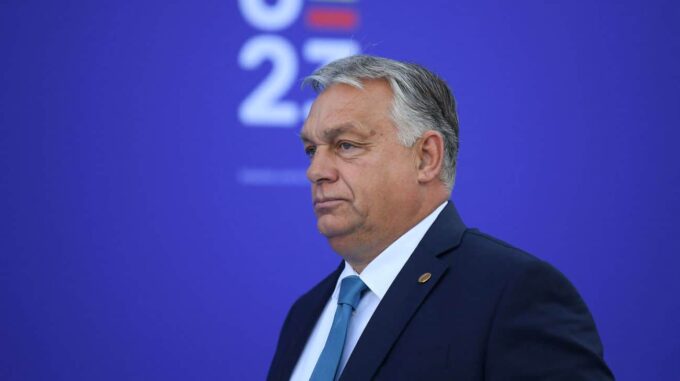Hungary and its leader Viktor Orbán have long been known for their pragmatic policy towards Ukraine, but recent unexpected and highly emotional statements by Ukrainian President Volodymyr Zelensky have added a new layer of tension to the relations between the two neighbors

The entire international political spectrum watched this exchange of words last week, which became one of the most acute in recent times and once again demonstrated how complex and multifaceted Ukrainian-Hungarian interactions are in the context of the war. The escalation of the situation occurred following Zelensky’s interview with Hungarian media, in particular the Válsaz Online portal, in which he sharply accused the Hungarian government of meddling in Ukraine’s internal affairs. According to the Ukrainian leader, Ukrainian-Hungarian relations are experiencing a difficult period due to Budapest’s actions, which he believes contribute to destabilizing the situation in Ukraine. Zelensky stated that the Hungarian authorities use the topic of Russia’s war against Ukraine to pretend neutrality or even support, but in fact interfere in Ukraine’s internal affairs, causing particular concern in Kyiv. Following these remarks, the response from Budapest was swift. Viktor Orbán reacted sharply to Zelensky’s accusations on his Facebook profile. He claimed that Zelensky “launched at” the Hungarians precisely because they “do not want to die for Ukraine.” This implies that, in Orbán’s view, Hungary considers it immoral and foolish to sacrifice its citizens and budget resources for the sake of foreign interests, especially given the complex and multi-faceted situation in the region. “We do not want our children to return home in coffins, and for our money to go to military purposes in Ukraine!” — this is how the Hungarian prime minister stated in his sharp and emotional response, which sounded like a call for both nations to remember real values and reflect on the cost of war. Amid this tension, Zelensky’s recent interview has raised even more questions regarding the true motives of Hungarian policies. The president emphasized that, according to his information, the Hungarian authorities “tried dozens of times in various ways” to interfere in Ukraine’s internal affairs, although most of these attempts remained private or were expressed through diplomatic steps that did not gain broad publicity. At the same time, he hinted that Hungary actively uses the topic of war for its internal political goals, particularly in the context of preparing for parliamentary elections. In response to these accusations, the Hungarian government explicitly denied any interference in Ukraine’s internal affairs. They pointed out that Kyiv perceives Budapest’s policies very one-sidedly, and that Ukraine’s main goal is to protect its values and sovereignty. The government emphasized that Ukrainian politicians, including Zelensky, are engaged in a political game that benefits the Hungarian opposition as well. Suspicion is growing in Hungary that Ukrainian politicians are attempting to use the situation to discredit Orbán’s government domestically. Regarding future elections and Ukraine’s position on European integration, this conflict further emphasizes the complexity of bilateral relations. Hungarian officials note that Ukraine’s EU membership is not a direct national interest for Budapest and that Hungarian politicians may exploit this issue for their own internal and external maneuvers. Meanwhile, experts observe that the situation surrounding the “Orbán’s Ukrainian plan,” which Kyiv’s editor Serhiy Sydorenko has repeatedly written about in “European Truth,” reveals Hungary’s true aim — transforming support for Ukraine into a tool for gaining internal political points. In summary, the tension between Kyiv and Budapest is only growing, and it shows no signs of easing. Both sides are trying to defend their interests and values, but the exchange of words could develop into a deeper crisis stage in relations, as both global political forces clearly seek to maintain their positions in a complex situation that will remain in the international spotlight for a long time.

